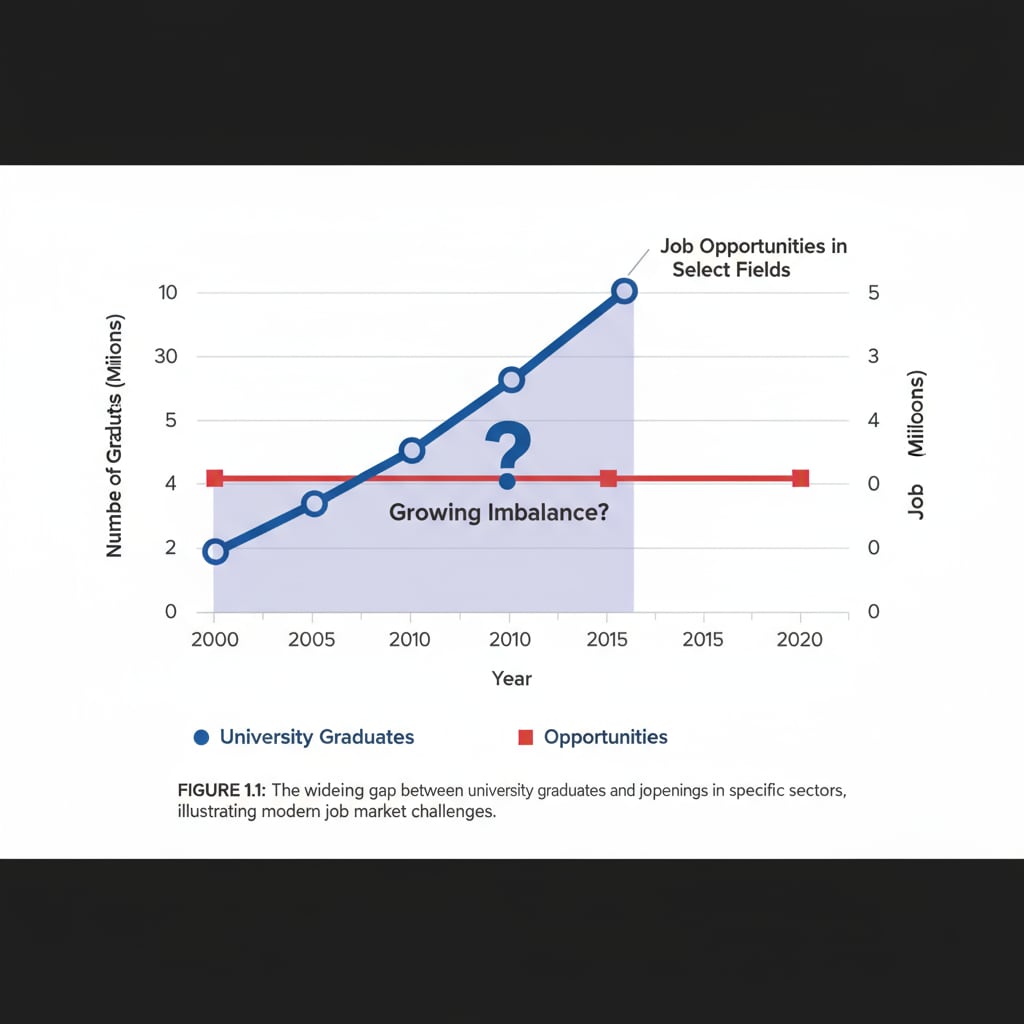University degrees, job market, and career development have always been intertwined. In today’s society, the pursuit of a higher education degree is often seen as a stepping stone to a promising career. However, an unsettling trend is emerging: a significant gap between the value of these degrees and the actual employment prospects. For instance, in the fast-food industry, we are witnessing an increasing number of highly educated individuals, even those with master’s degrees, taking on roles like store managers. This phenomenon forces us to question the worth of educational investment.

The Illusion of Degree Value
For decades, obtaining a university degree was considered a surefire way to secure a good job. Parents and educators alike emphasized the importance of higher education, promising a world of opportunities. As a result, students piled into universities, believing that a degree would guarantee them a high-paying job and a successful career. However, the job market has undergone significant changes. Job market dynamics have become more complex, and the supply of graduates has far outstripped the demand for certain degree holders. This has led to a situation where many degree holders are finding it difficult to land jobs that align with their educational qualifications.

The Fast-Food Industry as a Case Study
The fast-food industry has become a microcosm of this degree-employment gap. In recent years, there has been a notable influx of high-educated individuals into this sector. People with master’s degrees are managing fast-food stores, a far cry from the prestigious careers they might have envisioned. This is not to say that managing a fast-food store is an unworthy occupation, but it does raise questions about the return on investment in higher education. The fast-food industry’s growth has attracted a diverse workforce, but the mismatch between education and job roles here is a clear indication of the larger problem in the job market.
These highly educated individuals bring with them a wealth of knowledge and skills, yet they are often underutilized in their current positions. This underutilization not only wastes their potential but also has implications for the overall economy. It suggests that there are inefficiencies in the job market, where the skills and qualifications of individuals are not being properly matched with available job opportunities.
Readability guidance: The above content uses short paragraphs to clearly present the main points. Each section focuses on a key aspect of the issue. Transition words like “however” and “but” are used to connect ideas smoothly. Lists could be further incorporated in subsequent sections to enhance clarity.


